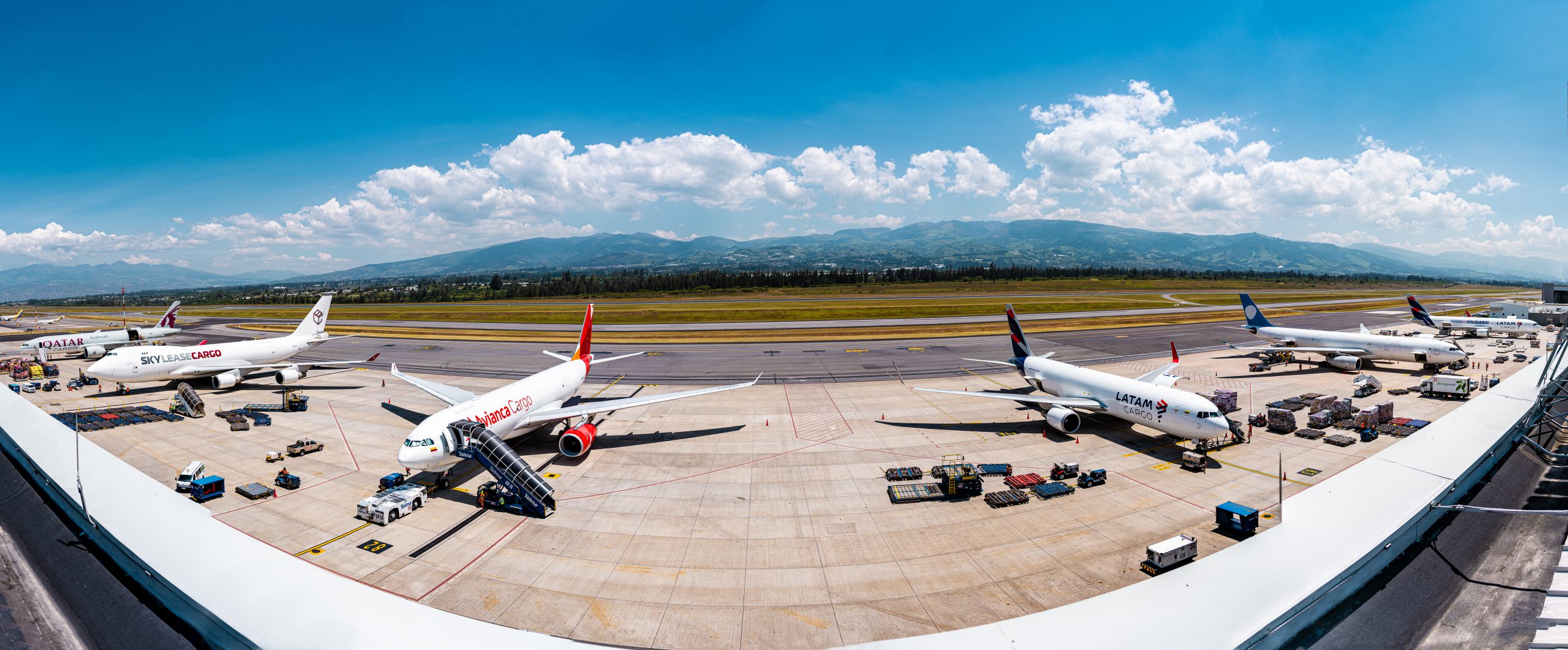2024 Valentine’s season ends with a record thanks to the growth of exports

• With 26,466 tons, a growth of 17.3% was registered compared to 2023 Valentine’s Day, the highest since 2013.
• With 1,942 tons of cargo exported, Friday, February 2nd, was the day of the season with the highest volume.
• The expansion of the export cargo terminal was key to enhancing operational efficiency.
2024 Valentine’s flower export season ended with very positive numbers at Quito Mariscal Sucre International Airport, with a total of 26,466 metric tons of flowers sent to the world, reaching a record in the airport’s 11 years of operation.This figure corresponds to a growth of 17.3% compared to the tonnage exported in 2023, which was 22,568 metric tons.
At the Quito airport, the season began on January 18 and extended until February 9. During this season, 16 airlines operated at the Quito airport cargo with a total of 487 outbound cargo flights, a number that also constitutes a historical record for the Valentine’s season.
The peak day of exports, that is, the day in which the most freighter operations and the highest volume of flowers were registered, was Friday, February 2nd, with 1,942 metric tons sent through 31 flights, also being the day with the highest volume of exports in the entire history of Quito airport.
Throughout these 23 days, the entire logistics chain within the Mariscal Sucre airport demonstrated once again that it is prepared to manage large volumes of export cargo.
The expansion of the export cargo terminal, which grew by 2,880 square meters in the cargo entry and processing areas, as well as the growth of the maneuvering area for trucks, was one of the factors that allowed more efficient air cargo.
“I want to thank all the airlines that operated on this Valentine’s Day 2024, as well as the ramp service companies that provide all ground assistance to the operation for their commitment to the development of the country and for their great professionalism and, especially, to the companies specialized in cargo palletizing that operate at the Quito airport: Novacargo, Servipallet, Pertraly and Novasan, which invested in the expansion of the cargo terminal to offer greater logistical and operational ease,” said Ramón Miró, president and CEO of Quiport.
“The Mariscal Sucre is one of the most powerful development poles that the city and the country has. It is the main air cargo airport in Ecuador and one of the most important in Latin America, which allows Quito to have access by air to key markets around the world, that is the vision with which we are working at CorporaciónQuiport”, concluded Ramón Miró.
